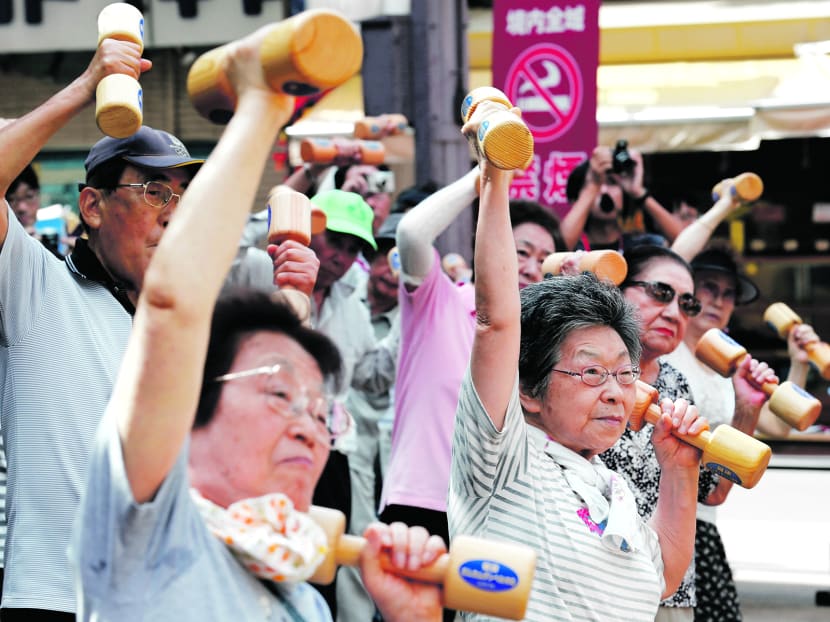Japan’s shrinking, ageing population challenges efforts to boost economy
TOKYO — Japan’s population slid for a third year with the proportion of people over the age of 65 at a global record, underscoring the challenge the world’s most-indebted economy faces in financing its ageing society.

People aged 65 or older made up a quarter of Japan’s total population, the highest-ever percentage, as postwar baby boomers head into retirement. PHOTO: BLOOMBERG
TOKYO — Japan’s population slid for a third year with the proportion of people over the age of 65 at a global record, underscoring the challenge the world’s most-indebted economy faces in financing its ageing society.
The population declined by 0.17 per cent to 127.3 million as of Oct 1 last year, as the country continues to have one of the world’s lowest birth rates.
People aged 65 or older made up a quarter of the total, the highest-ever percentage, as postwar baby boomers head into retirement, the Internal Affairs Ministry said on its website on Tuesday. That is the highest of any country in the world, said the Population Reference Bureau.
Japan’s debt has swelled to more than twice the size of its economic output, due partly to expanding health and social security costs associated with its ageing population.
As well as raising the sales tax to 8 per cent from 5 per cent this month, Prime Minister Shinzo Abe is seeking to encourage more women into the workforce to bolster the economy and government coffers and has also considered loosening restrictions on immigration.
Mizuho Securities Chief Market Economist Yasunari Ueno wrote in a report on April 9: “We have argued for some time that Japan has a lot to learn from Australia and the United States, which have demonstrated successfully that welcoming people from a variety of nations, who may think differently and have different cultures but are highly talented, strengthens the economy on both the demand and supply sides.”
A shrinking labour force is complicating efforts to raise tax revenue. The working-age population, defined as those between 15 and 64 years old, fell to less than 80 million for the first time in 32 years, the ministry said in its report. Japan’s fertility rate of 1.39 children per woman is the fourth-lowest among the nations of the Organization for Economic Cooperation and Development.
“The problem of the low birthrate and ageing population is getting more serious and the scale of the fall is remarkable,” Chief Cabinet Secretary Yoshihide Suga told reporters.
“Given the circumstances, it is a matter of urgency to build a society where women can shine,” he said, adding that more childcare provisions and a better working environment for women were among the necessary measures.
Children up to 14 years old made up just 12.9 per cent of the population, said the ministry, only slightly more than the 12.3 per cent of the population aged 75 or older. BLOOMBERG






